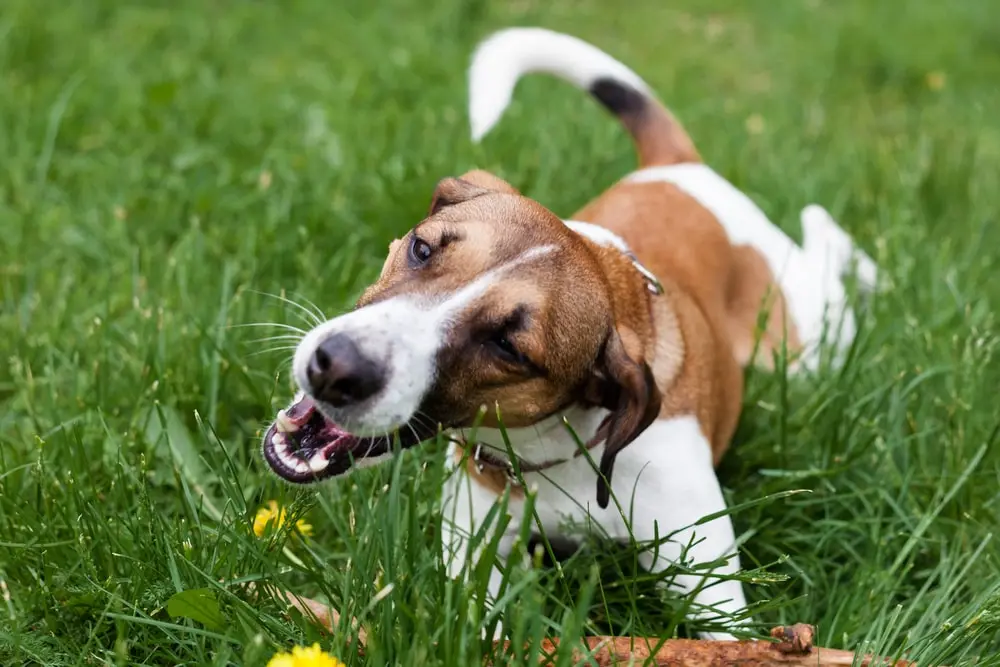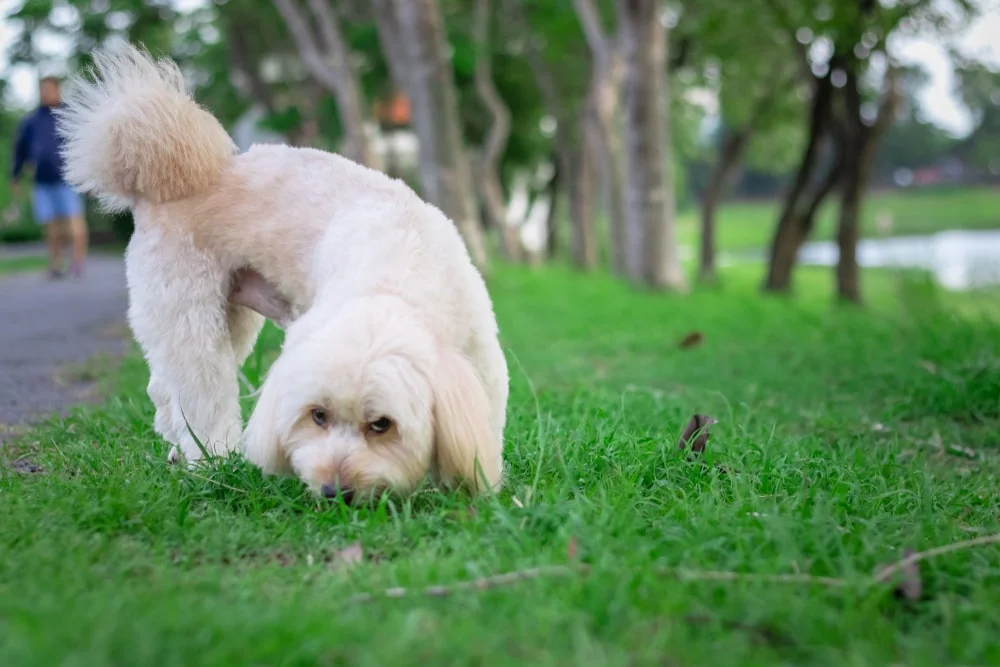PET BEHAVIOR
Have you ever taken your dog outside, only to find him eating grass like a cow chewing its cud? Does eating grass mean your dog is sick and trying to induce vomiting — or do they simply love the taste of fresh, green grass?
Grass-eating is a normal dog behavior, dating all the way back to dogs’ days in the wild.
Reasons Dogs Eat Grass
There is a common belief that dogs eat grass to soothe their upset stomachs because some dogs will rapidly consume grass, then vomit. However, according to VCA Animal Hospitals, fewer than 25% of dogs vomit after ingesting grass.³ Another study found that only 10% of the dogs who eat grass show any indication of illness beforehand, so it seems unlikely that most dogs are turning to grass to cure their stomach aches.⁴
Physical needs
Specialists have suggested that some dogs might eat grass to fulfill unmet nutritional needs, such as the need for more fiber in their diets. Fiber is essential to your pup’s digestive system to help digest food, eliminate waste, and perform other bodily functions. Grass is high in fiber, so it’s plausible that some dogs may require extra roughage in their diets.
Boredom
Dogs are social creatures that love interaction, particularly with their humans. If your dog feels they aren't getting enough of your attention, they may turn to inappropriate behaviors to get attention, such as chewing on furniture or eating grass.
Your dog might be more likely to have behavioral problems if you react to these behaviors. After all, negative attention is better than no attention.
Anxiety
Your dog’s world revolves around you. When you leave, your dog spends every moment waiting for your return. If your dog suffers from separation anxiety, eating grass may be a way to calm their anxiety, particularly if they get nervous when they know you’re preparing to leave. It may become a nervous habit, much like people who chew their fingernails or crack their knuckles.
Is It Normal for Dogs To Eat Grass?
As we touched on above, yes, it is totally normal for your dog to eat grass! Many veterinarians and scientists have seen grass-eating as a normal trait passed down to domesticated dogs from their wild ancestors.
Our dogs’ ancestors hunted for their food, and they didn’t have the luxury of eating prepackaged kibble designed with their dietary needs in mind. Their digestive systems and nutritional needs evolved over hundreds of years to suit the lifestyle of domesticated dogs. This explains why, even if you’re feeding your dog a complete and balanced diet, eating grass may be related more to instinct than to dietary deficiency.
Is grass good for dogs?
Grass itself is not dangerous to dogs; however, it’s important to keep in mind that certain herbicides and pesticides used on grass can be toxic to your dog. Fertilizers, weedkillers, and other chemicals used to keep grass pest-free can pose a severe risk to your dog’s health.
You should take your dog to the emergency clinic immediately if you think your dog ingested contaminated grass, especially if you notice the following signs of poisoning:5
- Distress
- Diarrhea
- Drooling
- Confusion
- Lethargy
- Burns
- Skin irritation and rashes
- Collapse
- Seizures
- Tremors
It’s best to make sure your dog only eats grass in your yard where you can control the environment. Eating grass wherever it looks yummy puts your pup at risk of ingesting intestinal parasites (such as roundworms and hookworms) that may get into the grass through the feces of other dogs.6
How to keep your furry companion safe when eating grass
Take steps to train your dog to stop eating grass or divert their attention to a safer treat.7 If your dog enjoys chewing on some grass every now and then, simply set some parameters to protect your dog’s safety, such as creating a dog-safe area on your property where your pup can graze. Make sure it is free of pesticides, fertilizers, weed-killers, and any dangerous plants. Also, keep the area free of dog feces and create a healthy diet for your dog.
Consider Investing in Dog Insurance
Looking for more ways to keep your pup happy and healthy? Consider investing in a dog insurance policy with MetLife Pet Insurance.¹ Our dog insurance policies can provide the coverage and care your furry family member deserves.² Get your free quote today!


